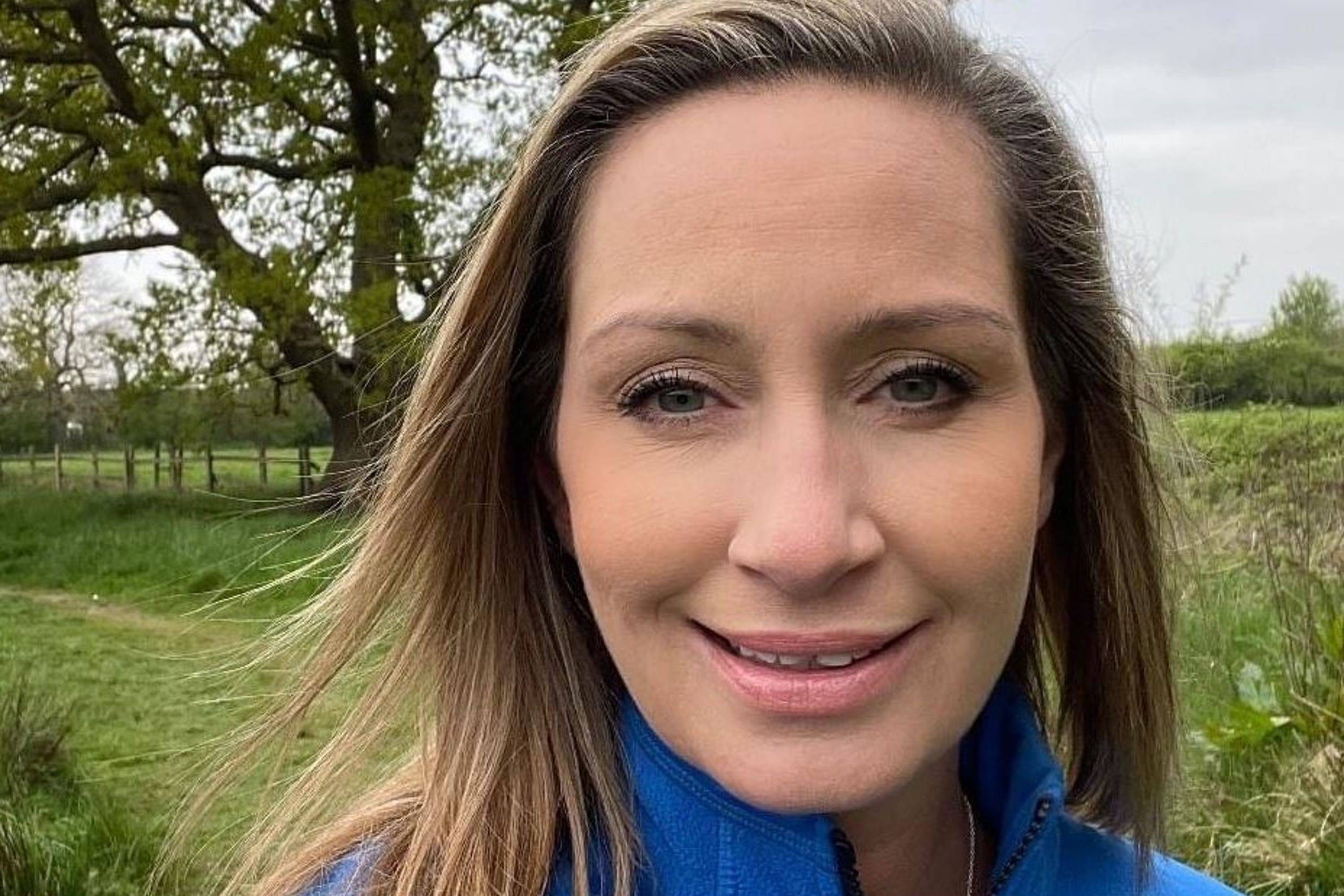Nicola Bulley: Underwater search expert criticised in review of missing mother case
The College of Policing report said Lancashire Police felt some of his behaviour and activities "caused challenges to the investigation".
An underwater search expert who joined the search for missing Nicola Bulley has been criticised in a review of the police handling of the case.
The College of Policing report said Lancashire Police felt some of Peter Faulding’s behaviour and activities "caused challenges to the investigation".
Mr Faulding, leader of underwater search experts Specialist Group International (SGI), told media that police had "low-tech" diving equipment, unlikely to be able to find a body.
Ms Bulley's family became aware of this report and efforts were made to contact SGI to help the search and to ask police to get SGI involved.
But police investigators were advised that SGI did not have any better equipment that could not be secured by the force.
However, communication by Ms Bulley's family friend to police expressed a "strong message that refusal to use Mr Faulding and SGI" would result in a "negative press release to the media".
The report said Lancashire Constabulary felt it was placed in an unenviable situation, which would lead to a widespread negative perception that the force was not using every opportunity to locate Ms Bulley, the report said.

Lancashire Constabulary felt that this would undermine public trust and confidence and, therefore, subsequently agreed to allow the use of SGI to support them in their search efforts and contacted Mr Faulding, who offered his services free of charge.
A chief inspector then met Mr Faulding to offer "suitable, robust advice about the information he is passing to the media - unhelpful to the investigation, the family and wider community".
Mr Faulding said: “If at any time I was asked to stop updating the media, I would have immediately, but no request was ever made.”
He added: “SGI have been utilised by the police on many high-profile search operations for many years and have located evidence and human remains. SGI are highly regarded and not simply a commercial diving company as described throughout the report. SGI have more technologically advanced equipment and expertise in this field. The report says we have the same equipment as the dive team, which is untrue, the SGI sonar is 1800kHz, the highest frequency available.”
Among the statements he rejects within the report as “not reflecting the actual events”, he also denied that SGI searched into 9 February, stating that his team left the scene the previous day.
The review said Lancashire Police appeared to present Mr Faulding with a non-disclosure agreement (NDA) not to discuss the search with anyone outside the investigation.
But SGI responded that no "official" NDA had been discussed or signed and, in fact, Mr Faulding and his team felt "ambushed" by the press and had no support from police so assumed his involvement with the media was "within the terms of engagement".
Mr Faulding told the report authors that he was not advised or supported with any media guidance by Lancashire Constabulary, that he did not receive any instruction not to engage with press.

The report said Mr Faulding had also informed the Bulley family that he thought he had identified a body deposition site (the location or believed location site of a deceased body).
As part of the review, Lancashire Constabulary suggested this had caused unwarranted distress and false alarm and resulted in the diversion of police resources to the family to remedy the situation.
The report continues: "It is the view of Lancashire Constabulary that Mr Faulding had a significant impact on the investigation and public confidence through his activities and his engagement with the media.
"The review team considers that some of his actions created a more challenging environment for the investigation team.
"His public statements often contradicted the investigative and operational approach, leading to confusion for the public and reducing the family's trust in the investigation and search operation."
Mr Faulding said he believed he found “a significant target that appeared, from my experience, to take human form” on 7 February when searching in the River Wyre for Ms Bulley, but police told his team it was not her after a dive in the area.
He said: “Although I thought I had found a very credible target, I conceded that maybe I was wrong and later that afternoon I made a statement to the media saying that there was no sign of Nicola and that I did not think she was in the river.”
He added: “I also strongly implored the review team to sensitively disclose my findings to the family as this will be very distressing for them.”
Join our commenting forum
Join thought-provoking conversations, follow other Independent readers and see their replies
Comments
Bookmark popover
Removed from bookmarks